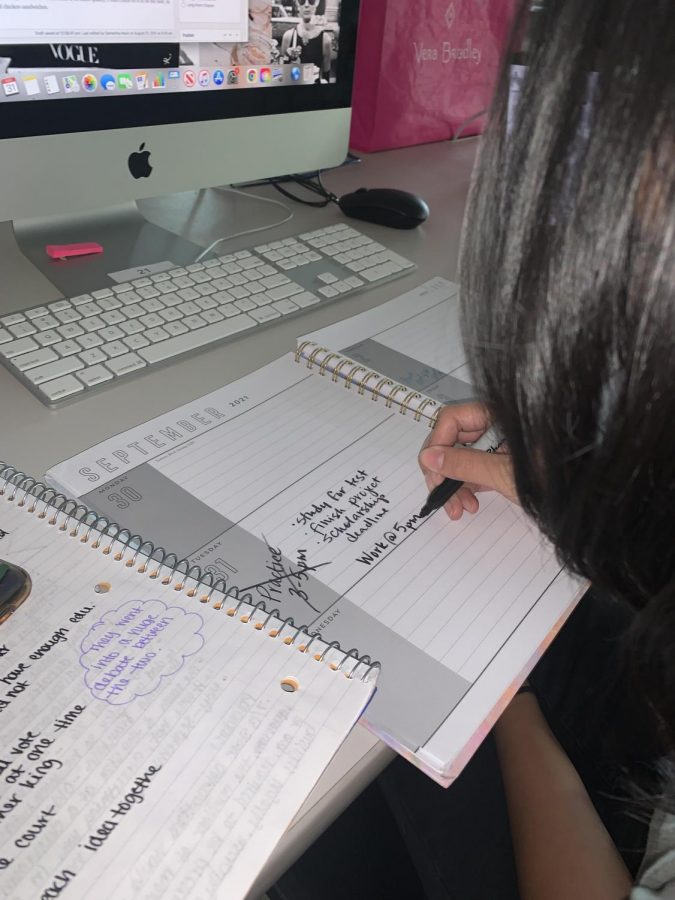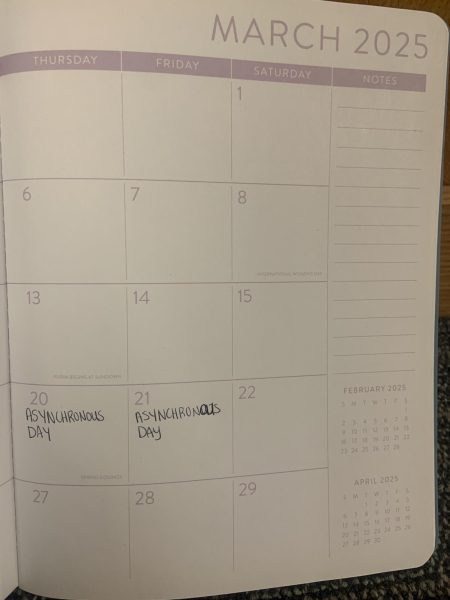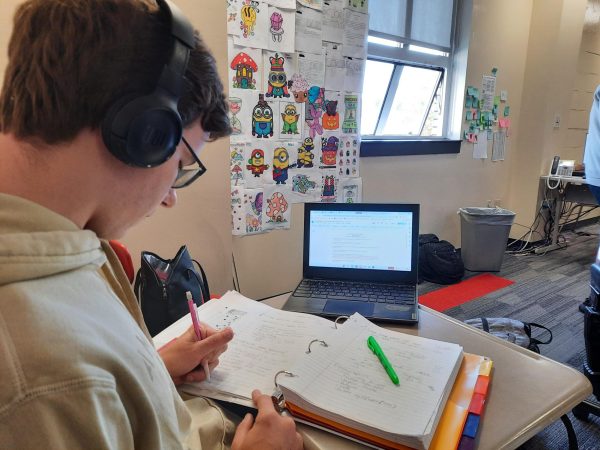Extracurricular dropout
Once you find your first niche, it’s hard to grow out of it.
No matter what you do, people will always find a way to associate you with that sport, hobby, or extra curricular activity, which some people are more than okay with. But for the few who aren’t, it’s hard to find your ground when you’re so used to the familiarity of that niche.
In this new world we’re still adjusting to, it makes it even harder to stick to a certain thing. Practices are different and new jobs are open and new people are joining the team, it’s not the same as it used to be. Who knows if it will ever be that way again? But for the people who were waiting for this to change their minds, it’s the perfect opportunity.

For instance, I was in theatre for five years and I was almost positive I wanted to stick with it. I loved the aspect of learning lines, performing
for people, and I loved hearing praise from the audience. It was a thrill and I honestly loved the attention.
But the second the pandemic hit I realized that it just wasn’t for me. It was almost like I developed stage fright. The thought of singing or dancing in front of an audience made me bite at my nails nervously. I wanted to find something I knew I was good at and couldn’t wait to do, which wasn’t theatre.
Senior Nate Wood is in the same boat. After playing football for roughly nine years, in and out of school, he realized it just wasn’t for him.
“It was fun for probably the first six or seven years,” Wood said. “But then it became more of just making my parents happy.”
That’s the case for a lot of students. But unfortunately, very few of them go through with actually quitting the team or dropping the hobby.
“I wanted to stop playing my junior year, but I stayed on the team for my brother,” Wood said. “At least now I’ve got a lot more time to do my homework and get my grades up.”
Balancing school and after school activities isn’t always easy. It’s hard to put the right amount of time into both and still come out on top. That’s a well known debate, but it rings true every time. It’s almost impossible to balance everything as a teenager and still get a good night’s sleep.
“It’s a good feeling to be able to go home instead of going to a four-hour practice,” Wood said. “I can do whatever I want now.”
But dropping a sport doesn’t mean Wood has dropped absolutely everything. If anything, it leaves his options open for new activities.
“I actually got an apprenticeship at my church,” Wood said. “I plan to go into ministry in college, so it helps with that as well.”
But football still holds a place in Wood’s heart. After doing something for so long, it’s hard for it not to. But he says that the one lesson doing football taught him is that you can’t change people’s minds.
“You can’t coach or influence someone’s decisions that are already made,” Wood said. “There’s certain qualities in a person that you can’t change- they have to develop it on their own.”
Obviously, this applies to every aspect of school. In every sport or extra curricular there’s doubt, drama, and wasted potential because people aren’t doing what they truly want. It could be something totally unexpected, too. For example, I stopped doing theatre so I could join the school newspaper. It was something that completely redirected what I had spent 6 years doing but I didn’t regret it.
In my experience, I was wasting my potential with theatre. I’ve applied to colleges and for scholarships in the name of journalism and it’s something I really feel like I have a chance at excelling in. I’m putting all my extra time into doing that and I even joined radio with that free time.
So, if you’re looking for a sign to try something new- this is it.
Hi! This is my first year as a reporter for the Blotter :)
I'm excited to be apart of the staff to get to talk to new people and see their different...







